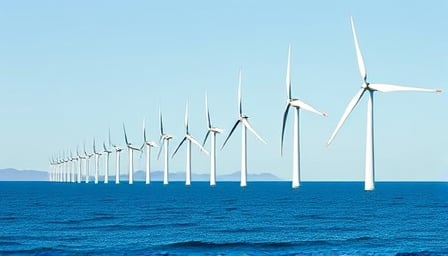Orsted Faces Grid Reliability and Economic Concerns Following US President’s Decision
Orsted AS, a leading offshore wind farm developer, is grappling with the far-reaching implications of the US President’s decision to suspend construction of one of its wind farms off the coast of Rhode Island. This move has sent shockwaves through the industry, raising critical concerns about grid reliability and the region’s economy. The potential consequences are stark: increased consumer costs, a blow to the local economy, and a significant setback for Orsted’s ambitious growth plans.
The halt in construction has also cast a shadow over Orsted’s planned $9.4 billion share sale, which is set to take place in the near future. Analysts are warning of potential further problems for the company, with Orsted’s stock price struggling to recover from a recent low. The uncertainty surrounding the company’s future is likely to weigh heavily on investor sentiment, making it increasingly challenging for Orsted to secure the funding it needs to drive growth.
Despite these challenges, Orsted has announced a new partnership with Odfjell Oceanwind, taking a stake in the Salamander project. This move is a significant development, demonstrating the company’s commitment to its growth strategy and its ability to adapt to changing market conditions. However, the partnership is unlikely to offset the negative impact of the US President’s decision, and Orsted will need to work tirelessly to mitigate the consequences of the suspension.
Key Developments:
- Orsted’s stock price has struggled to recover from a recent low, with analysts warning of potential further problems for the company
- The halt in construction has cast doubt on Orsted’s planned $9.4 billion share sale
- Orsted has announced a new partnership with Odfjell Oceanwind, taking a stake in the Salamander project
- The US President’s decision has raised critical concerns about grid reliability and the region’s economy
Market Reaction:
The market is likely to remain cautious in the short term, with investors closely monitoring Orsted’s ability to navigate the challenges posed by the US President’s decision. The company’s stock price is likely to remain under pressure, and the planned share sale may be delayed or even cancelled. However, Orsted’s long-term prospects remain strong, and the company is well-positioned to capitalize on the growing demand for renewable energy.
